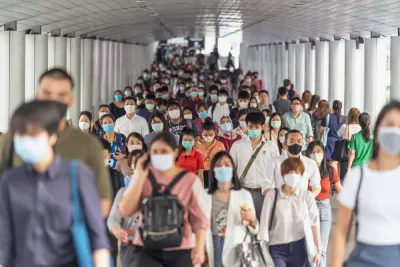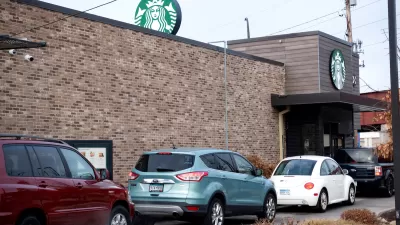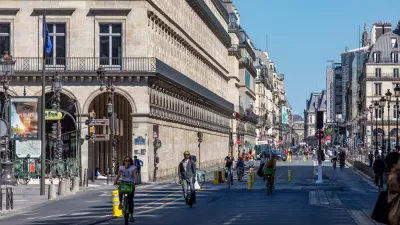As economies begin to reopen around the world, some cities are taking action to prevent widespread gridlock.

"As coronavirus lockdowns loosen around the world, city leaders are scrambling to address a new problem: the prospect of gridlock worse than before the pandemic," write Somini Sengupta and Brad Plumer. "From Shenzhen to Milan to Austin, officials are trying to coax people back onto buses and subways and reclaim road space for cyclists and pedestrians."
The consequences of fewer people riding transit or riding bikes will be bad for congestion, pollution, and injuries and fatalities caused by collisions, according to the article. But many cities are struggling to mitigate the oncoming traffic.
More than 30 large cities coming out of lockdown, including Hong Kong, Shenzhen, Oslo and Geneva, recorded more congestion on their roads in mid-June compared with the same period last year, according to data from TomTom, a navigation company. Other early evidence suggests that driving is increasing faster than public transit use as people step out of confinement and move around again.
The article surveys the globes for some of the transportation planning responses to the growth in automobile travel as public transit struggles, including the examples of Bogotá, London, Seoul, Beijing, and Austin. Here are the details on Austin's efforts:
In Austin, Tex., the city has expanded its system of public shuttles that can be reserved through a mobile app by riders who aren’t well served by existing bus lines. Officials are also drawing up plans to better integrate existing bus and rail lines with the city’s bike-share system by offering unified ticketing and apps. They also plan to eventually replace the city’s 1,000 shared bikes with electric versions that make travel easier in the sweltering Texas heat.
FULL STORY: Lockdowns Tamed Road Traffic. Here’s How Cities Aim to Keep It Down.

Maui's Vacation Rental Debate Turns Ugly
Verbal attacks, misinformation campaigns and fistfights plague a high-stakes debate to convert thousands of vacation rentals into long-term housing.

Planetizen Federal Action Tracker
A weekly monitor of how Trump’s orders and actions are impacting planners and planning in America.

In Urban Planning, AI Prompting Could be the New Design Thinking
Creativity has long been key to great urban design. What if we see AI as our new creative partner?

King County Supportive Housing Program Offers Hope for Unhoused Residents
The county is taking a ‘Housing First’ approach that prioritizes getting people into housing, then offering wraparound supportive services.

Researchers Use AI to Get Clearer Picture of US Housing
Analysts are using artificial intelligence to supercharge their research by allowing them to comb through data faster. Though these AI tools can be error prone, they save time and housing researchers are optimistic about the future.

Making Shared Micromobility More Inclusive
Cities and shared mobility system operators can do more to include people with disabilities in planning and operations, per a new report.
Urban Design for Planners 1: Software Tools
This six-course series explores essential urban design concepts using open source software and equips planners with the tools they need to participate fully in the urban design process.
Planning for Universal Design
Learn the tools for implementing Universal Design in planning regulations.
planning NEXT
Appalachian Highlands Housing Partners
Mpact (founded as Rail~Volution)
City of Camden Redevelopment Agency
City of Astoria
City of Portland
City of Laramie





























